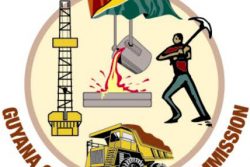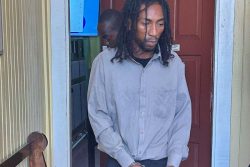Trinidad & Tobago, caught in the headwinds of Olympic gold medal and bronze medal successes, was able to put all its troubles aside last week, as it celebrated, following Jamaica, fifty years as a sovereign state. Citizens throwing their minds back of course, will have recalled that the transition to independence was seen, in some measure, as a second-best option with Jamaica’s decision to abandon the federal experiment. Trinidad’s then Premier, Dr Eric Williams then abandoned any notion of a federation without Jamaica with his memorable statement that “One from ten equals nought.”
Williams, in that period, was himself disappointed at the form of federation which, he felt, was imposed on the islands by the British government, and his response to the Jamaica referendum indicated clearly that he had begun to feel that the structure was somewhat of a burden. For Trinidad, it did not sufficiently permit the kind of decisive and integrated regional economic planning that was necessary to ensure economic development.
Williams, at that time, rode supreme in the country’s politics, dominating his opponents in the multi-ethnic country, though he seemed to feel that too many concessions might have been made to the Indian-dominated opposition, on the nature of the country’s constitution. But he was in fact virtually forced into these concessions as the British government’s price for conceding an early independence.
As the years went by though, it was not that ethnicity issue that provided the political headaches that he was to have. Instead the sudden and persistent demonstrations in early 1970, indicated dissatisfaction on the part of his own black supporters with their economic and social progress. They insisted that the ownership structure of the economy had retained too much of its old colonial character, and that they had not been meaningful beneficiaries of Williams’ policy. The transformation of demonstrations into an attempted military-led coup, placed the Prime Minister at his lowest ebb, as his country seemed to be joining the ranks of Third World states wracked by political instability and constant coups.
Williams never seemed the same again, although he was something of a prime mover in the regional decision to create the Caribbean Community and Common Market, outlined in the Treaty of Chaguaramas of 1973. Yet, not much later Williams seemed to abandon interrelationships with his Caricom colleagues, by refusing to attend meetings of the Community and, in effect, preventing meetings from being held at the highest level. He really locked himself away from the region, while, as he slid to his death in March of 1981, it was becoming evident, once again, that dissatisfaction was brewing with the slow pace of economic growth in his homeland.
That dissatisfaction boiled over into a dramatic victory, in 1986, by a multi-ethnic coalition, the National Alliance for Reconstruction (NAR), led by the former PNM Deputy Prime Minister, ANR Robinson with Basdeo Panday as Foreign Minister. But as the economic recession in the country grew more severe, dissatisfaction once again boiled over into, this time in 1991, an attempt at a kind of civilian coup led by what seemed to be a minority group, the Jamaat al Muslimeen. The holding of Robinson and most of his government ministers hostage in the Parliament was a severe embarrassment.
That coup has since overshadowed the country’s history, as demonstrated by the fact that it has only been in recent months that a subsequent government was able to assemble a Commission of Inquiry into the events of that time. Whether these proceedings can act as a kind of catharsis, liberating the minds of the people and their politicians from the humiliation of that time, is still left to be seen.
From that period, with the defeat of the NAR, it can fairly be said that the country’s politics has been dominated by the return to power of the PNM under Patrick Manning, and a period of relative prosperity as the country reaped the benefits of the exploration of its natural gas reserves. Manning turned out to be something of a mercurial figure, pursuing a strategy of rapid infrastructural development, and discounting criticism, while encouraging persistent foreign investment in the energy sector, and a participatory role for the state sector.
The nature of that development suggested, however, inadequate state supervision of the financial sector that eventually led to the CLICO financial collapse, and to grave doubts about the government’s ability and that of its iconic central bank, to ensure the proper functioning of the country’s regulatory institutions.
It would appear to have been Manning’s alienation of a variety of sectors, and isolation from critical tendencies within his own government and party, that induced him to suddenly call a general election, and find himself defeated by a People’s Partnership dominated by the United National Congress, which had now shorn itself of Basdeo Panday.
So the dominant personalities in the politics of Trinidad & Tobago, virtually since the death of Eric Williams, found themselves cast away, in favour of what really appears to be a political arrangement dominated by private sector interests under Kamla Persad-Bissessar whose actual strength within the new coalition remains to be assessed.
In the meantime, while it is true that the energy sector continues to dominate, and places Trinidad and Tobago as still the dominating economy in a Caricom region feeling the strain of recession, it is not evident that the PP government is as yet willing to play an active and stimulating part in the regional integration process. The government’s half-hearted approach to joining the Caribbean Court of Justice which Basdeo Panday fought hard to have located in Trinidad, seems symptomatic of trends in its overall policymaking. Uncertainty over the country’s longer-term direction continues to prevail.







